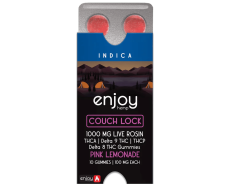When it comes to knowing when, why, and how much you should take over-the-counter diet drugs, the answer is not so straightforward. While these products can help some people achieve their health and weight loss goals, they may also come with serious side effects that could put your health at risk. In this article, we’ll discuss the pros and cons of taking appetite control pills in order to help you make an informed decision.

What are Appetite Control Pills?
Appetite control pills are medications specifically designed to reduce hunger or decrease a person’s desire to eat. These pills may be available over-the-counter (OTC) or by prescription from a healthcare provider. OTC appetite suppressants usually contain stimulant compounds like caffeine or ephedrine that act on the central nervous system to temporarily reduce feelings of hunger. Prescription appetite suppressants often contain stronger active ingredients such as phentermine or diethylpropion, which have more powerful effects on the body than OTC versions but may also have greater potential for side effects.
Benefits of taking appetite control pills
There are many potential benefits associated with taking appetite control pills:
- Weight Loss – One of the most obvious benefits of using appetite suppressants is that they can help people lose weight faster than diet and exercise alone. The reduction in cravings and hunger caused by these drugs, when combined with lifestyle changes such as a healthy diet and regular exercise, can make a significant contribution to successful weight loss.
- Improved concentration – Some research has suggested that certain ingredients found in appetite suppressants may also improve concentration levels throughout the day due to their stimulating effects on the brain’s neurotransmitters. This could lead to improved alertness, focus, memory recall, and overall cognitive performance for those who use them regularly over long periods of time.
- Reduced stress eating – For individuals who tend to eat out of stress or emotional distress rather than actual hunger cues, taking an appetite control pill may provide some relief from this type of compulsive behavior by reducing the cravings associated with stress eating episodes.

Cons of taking appetite control pills
Despite the many potential benefits, there are still drawbacks to taking appetite suppressants:
- Side effects – All medications come with possible side effects; however, these risks tend to be magnified when it comes to prescription-strength medications such as those used to control food cravings/hunger levels over long periods of time, as opposed to short bursts/courses taken occasionally as needed only, without prolonged exposure/usage [sic]. Common adverse reactions include anxiety, insomnia, restlessness, irritability, increased heart rate, high blood pressure, dizziness, headache, upset stomach, etc. In addition, long-term users should always be aware of any abnormal changes in mood/behavior that may indicate the need for medical intervention if symptoms do not improve immediately after stopping the medication.
- Risk of addiction – Unfortunately, because these types of drugs work on dopamine receptors to produce the desired results, they can lead to the development of addiction problems if abused too frequently over a long period of time without proper guidance from healthcare professionals. Although rarer than other forms of substance abuse problems such as opioid addiction, it is important [for] users to be aware of the potential pitfalls before considering use.








